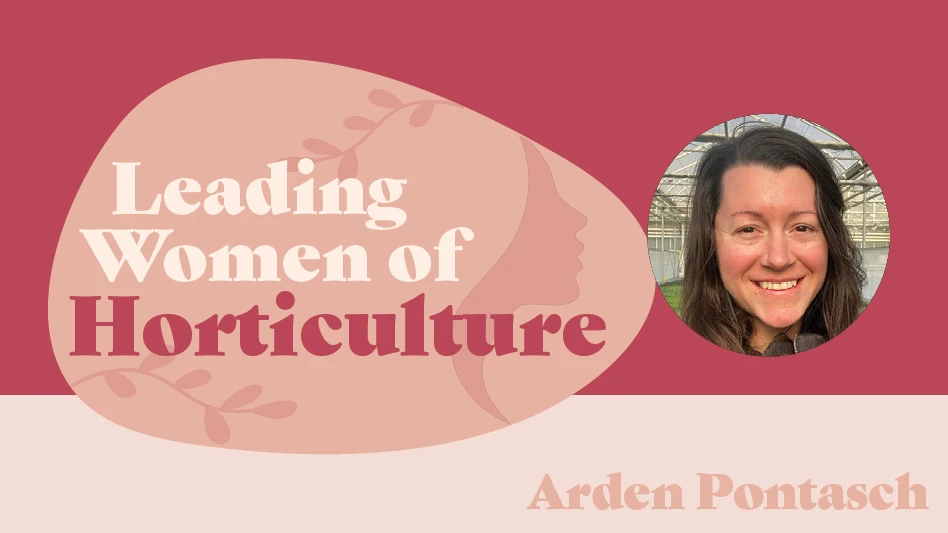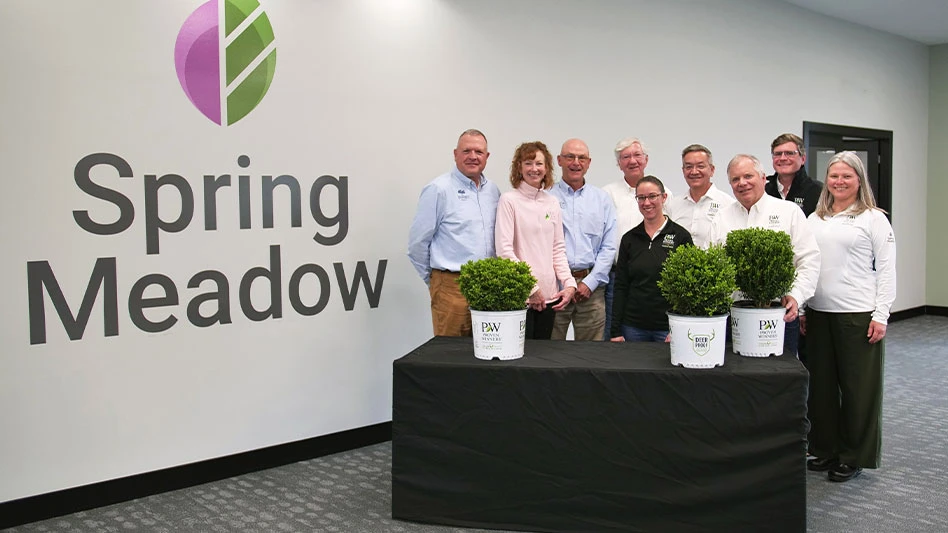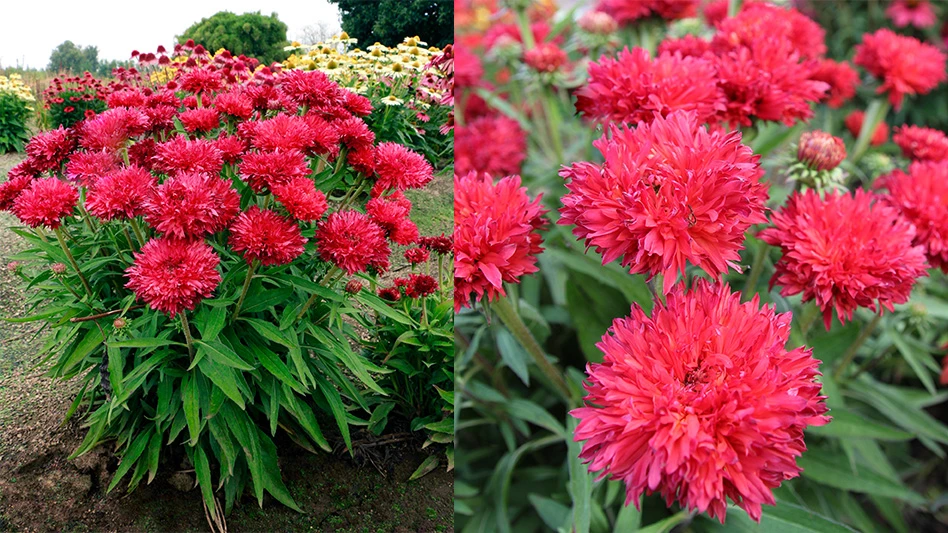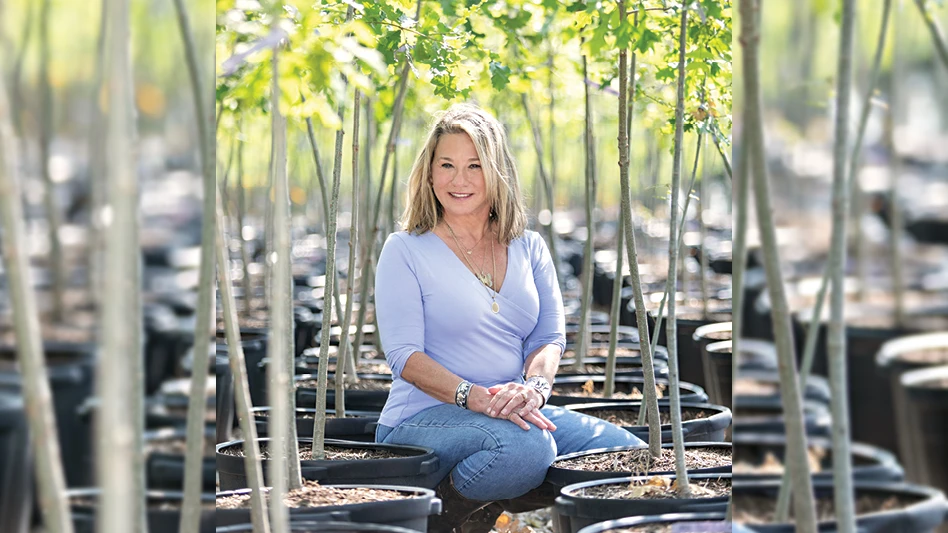
Matt McClellan: You’re the plant trials manager at North Creek Nurseries. What does that entail?
Arden Pontasch: Essentially I shepherd new products into our gardens so we can trial them. We’ve got some new plant principles that we that we make sure that every introduction adheres to at North Creek. First, hardiness with the Mid-Atlantic region. We make sure that they’re not invasive or overly aggressive and we make sure that they require minimum inputs to no inputs after the first year of getting established in the landscape.
MM: What is your plant evaluation process like?
AP: Plants will spend three years in our garden at the minimum because we think that’s a good time for us to get to know the plants. During that time, we evaluate them for propagation worthiness as well, to see how they could be produced in our propagation facilities, whether that’s through seed, TC or unrooted cuttings.
We evaluate them monthly for garden worthiness with an in-field survey we developed in-house for vigor, uniformity, wow factor and environmental stress resistance. We partnered with Mt. Cuba Center to see their evaluation processes and adapted them to meet our needs.
After three years of being in the garden, plants get phased out, adopted or moved to other parts of our trial garden. Right now, we have around 500 different unique plants within the upper trial garden area. So it can be time-consuming! But it is very important to us to stay up to date with trends in the industry, although we are a lot slower to bring in new plants than your traditional plug and liner wholesale nursery.

MM: Where do the plants in your trials come from?
AP: We’ve got a lot of relationships throughout the industry. We receive plants from prominent plant breeders or introduction companies like Dümmen Orange, Darwin Perennials, Walters Gardens. But we also work with independent breeders as well.
MM: What brought you to North Creek?
AP: I’ve been in the horticulture industry for going on 20 years. I cut my teeth at a local garden center. I learned my ABCs of perennials, annuals and general plant growing and maintenance, especially on the retail side working there on and off through college. But in 2007 or 2008, on the break table I saw a North Creek catalog that was about planting for function. That was the foray that opened my mind to planting beyond aesthetic beauty, which I grabbed ahold of and took with me through the rest of my horticulture career.
Before I came to North Creek, I was working at the Wood County Park District, just south of Toledo, as their sustainability specialist. I loved the work I was doing there. I felt like it was a worthy cause but wanted to make a bigger impact. North Creek is a company that was doing that. The timing was right, a position opened and the rest is history.
MM: What are the biggest challenges you face ?
AP: Internally, plant education. Despite having the garden, I feel like it’s lost on some folks the breadth of plants we see before they make it to the production line. The work and enthusiasm that goes into the plants we offer and the ones we don’t offer. People who come through the R&D greenhouse think ‘Whoa, what are all these crazy plants?’ It’s a lot of fun; I feel like a mad scientist sometimes.
This article appeared in the March 2025 issue of Nursery Management magazine under the headline "Focus on function."

Explore the March 2025 Issue
Check out more from this issue and find your next story to read.
Latest from Nursery Management
- The HC Companies, Classic Home & Garden merge as Growscape
- Eason Horticultural Resources will now officially be known as EHR
- BioWorks receives EPA approval for new biological insecticide for thrips, aphids, whiteflies
- Ellen Mackenbach-Lakeman appointed new CEO of Dümmen Orange
- Southern Garden Tour sets 2025 dates for trial garden open houses
- New book explores plants that thrive in Rocky Mountains
- American Floral Endowment establishes Herman Meinders Memorial Tribute
- These companies are utilizing plastic alternatives to reduce horticultural waste




